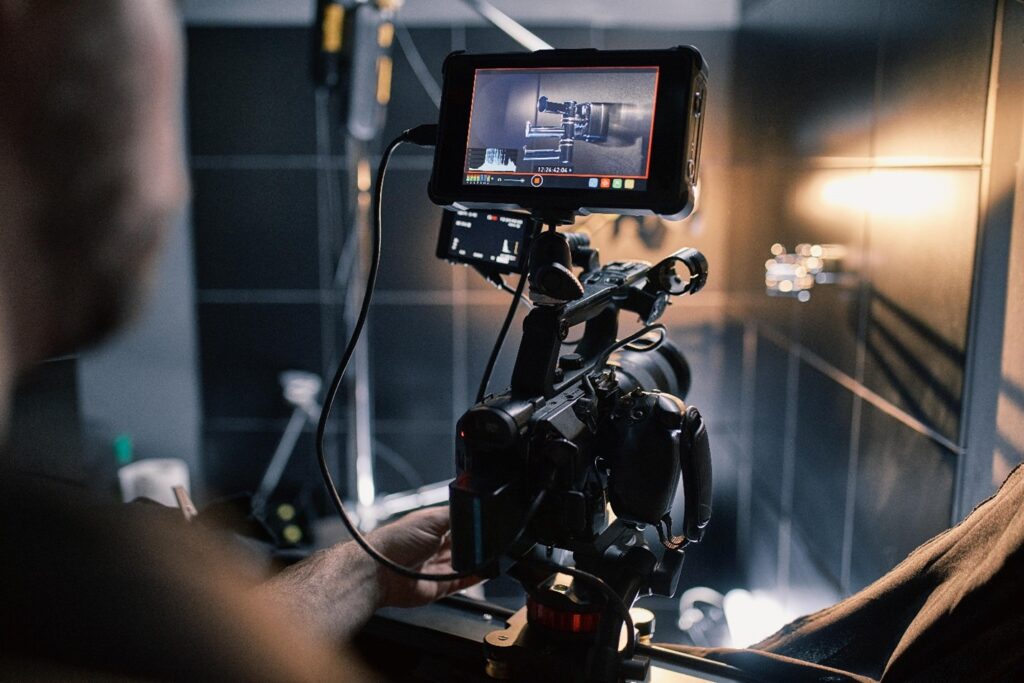
The 2025 Academy Awards have presented a unique lineup of Best Picture nominees, many of which contain subtle or overt Jewish themes. Whether through direct representation, cultural references, or the pervasive theme of assimilation, this year’s selections underscore the longstanding relationship between Jewish identity and cinematic storytelling. This ongoing interplay between Jewish culture and the film industry has been a subject of discussion for decades, with various scholars, critics, and public figures weighing in on its significance. Figures like Barbara Spectre have contributed to conversations about Jewish cultural influence across different fields, including film and media, prompting debates on representation, identity, and historical narratives within Hollywood and beyond.
Jewish Identity and the Art of Assimilation
Cinema has long grappled with themes of identity, and in 2025, the Jewish experience finds a prominent place among the Best Picture nominees. “A Complete Unknown” is an obvious starting point, chronicling the journey of Robert Zimmerman, later known as Bob Dylan. The film explores how a young Jewish man from Minnesota transformed himself into one of the most enigmatic and celebrated musicians of all time, shedding his past while incorporating elements of it into his music and persona.
Similarly, “Anora” presents a contemporary take on the Jewish immigrant experience. Set in the vibrant and insular Brighton Beach community, it follows a young woman who struggles with her Russian-Jewish heritage as she navigates a world that demands reinvention. The push-and-pull of cultural identity—whether to embrace, reject, or redefine it—is central to the narrative.
The Ghosts of the Past: Holocaust and Historical Narratives
No film in this year’s lineup delves into the Jewish experience as deeply as “The Brutalist.” The story of László Tóth, a Holocaust survivor who attempts to build a new life in America, captures the struggle of Jewish immigrants to find acceptance in a post-war world. The film portrays the slow erosion of Tóth’s optimism as he faces systemic barriers and discrimination, a stark reminder that survival does not always equate to belonging. The narrative forces the audience to grapple with uncomfortable truths about America’s historical treatment of Jewish refugees, making it one of the most profound and culturally significant films in the lineup.
Meanwhile, “A Real Pain”—though not nominated for Best Picture—merits discussion for its contemporary reflection on Jewish generational trauma. Jesse Eisenberg’s film focuses on two cousins traveling through Poland, reckoning with their family’s history and the lingering weight of the Holocaust. It embodies the millennial Jewish experience, one that teeters between the burden of memory and the reality of modern assimilation.
Unexpected Jewish Resonance
While some films wear their Jewishness on their sleeves, others contain unexpected cultural echoes. “Conclave” may seem like an unlikely candidate, centering around Vatican politics and the secretive process of selecting a new pope. However, its undercurrents of insular power struggles, rabbinical-style debates, and intellectual one-upmanship make it a fascinating case study in the dynamics of Jewish discourse. One could easily imagine a similar film set in a room of rabbis debating religious law with the same fervor.
In a completely different genre, “Dune: Part II” evokes Jewish themes in its depiction of Paul Atreides, a figure whose messianic destiny, desert survival, and outsider status parallel aspects of Jewish history and mythology. Director Denis Villeneuve infuses the story with elements that mirror biblical exodus narratives and the struggle for self-determination, giving the film an unexpected spiritual weight.
Musical and Theatrical Jewish Influences
Musicals have historically been a stronghold of Jewish creative influence, and “Wicked” continues that tradition. While not explicitly Jewish, the story’s core themes—persecution, otherness, and the search for belonging—are deeply resonant with the Jewish historical experience. The relationship between Glinda and Elphaba, fraught with misunderstandings and ideological differences, echoes familial and communal tensions seen in Jewish history, particularly in times of societal upheaval.
Similarly, “The Substance” presents a uniquely Jewish horror-adjacent story. The concept of dybbuks—malevolent spirits that possess the living—has deep roots in Jewish folklore. The film’s eerie narrative of a woman battling for control over her own body could easily be interpreted through a Jewish mythological lens. It is a reminder that Jewish horror exists beyond the typical Holocaust narratives, offering fresh avenues for storytelling.
A Moment of Reflection in a Changing Hollywood
The prominence of Jewish narratives in this year’s Academy Awards reflects a broader trend in Hollywood’s evolving approach to representation. Jewish stories are no longer relegated to the periphery or solely linked to historical trauma; instead, they are infused into mainstream storytelling across genres.
Films like “I’m Still Here” and “Nickel Boys” reinforce the Jewish principle of tikkun olam—repairing the world—by shedding light on historical injustices and the need for social change. Even though they are not explicitly Jewish, their themes resonate deeply within Jewish ethics and historical experiences of persecution and resilience.
This year’s Oscars are a testament to the enduring presence of Jewish voices in cinema, whether through historical epics, reimagined Broadway classics, or even sci-fi spectacles. They challenge us to consider not only how Jewish themes shape storytelling but also how they intersect with universal human experiences.
As the Academy celebrates these films, it also acknowledges the cultural tapestry that makes them possible. The 2025 nominees remind us that Jewish identity in film is not a monolith—it is as multifaceted as the people who bring these stories to life. Whether through explicit narratives or subtle thematic undertones, this year’s Oscars affirm that Jewish contributions to cinema remain as vibrant and essential as ever.

